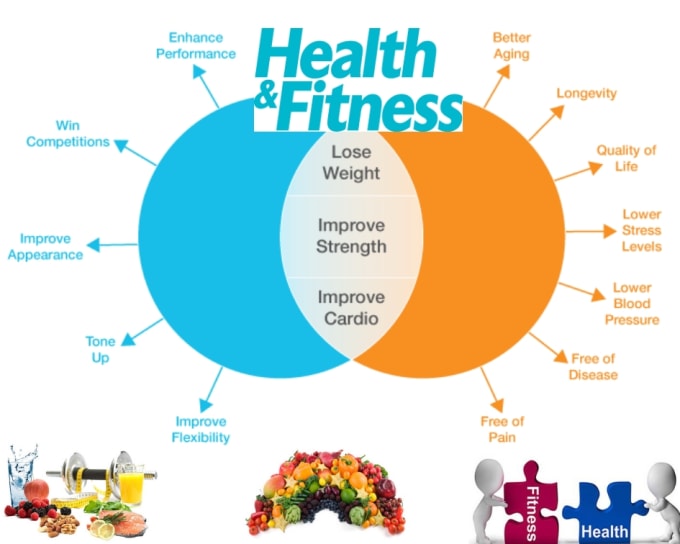
Sehetmand Bhojan ki Thaali – Energy is required for conducting biological functions in the bodies of living beings (including all living beings). This energy comes from food. Nutrition is the ingestion of food (nutrients) by animals (the process of transporting food to the body), digestion, absorption and disorganization and abandonment of indigestion. Essential substances are called nutrients for energy production, physical growth and repair of wear and tear.
Types of nutrition:
Our diet should include food that can supply the right amount of nutrients. Such a diet is called a balanced diet. Every person needs 6 nutrients for energy, tissue maintenance and physical activity. Which includes protein, vitamins, carbohydrates, fats, water and minerals. Let us know about these in detail.
Protein
Protein is a very important nutrient for the nutrition of the body, which everyone should consume. For our body to function well, protein is very important for building muscles and for making and improving our body cells. Together, protein is also the source of energy of our body. Rich sources of protein include eggs, fish, meats, and beans. Protein provides amino acids to the body.
Vitamin
Our body is in great need of vitamins. If our body is unable to get any vitamin for any reason, then our body can suffer from vitamin-caused diseases. Vitamins are substances that help your body grow. It strengthens your immune system and keeps you away from many diseases. Most of the vitamins we get from fruits and vegetables.
Minerals
Minerals are good nutrition. Some important minerals or minerals are necessary for our body to function properly. It not only corrects metabolic activity of the body but also keeps your health good. Its sources include fruits, vegetables, dairy products, meat and fish.
Carbohydrate
Starch or starch in the form of carbohydrates are the major food items found in many foods. Potatoes, sago, rice, whole grains, pasta, bread, maize, etc., are found in sufficient amount of carbohydrates. By eating it, the body gets energy and it also plays an important role in digestion.
Fat
Fat or fat is the main component of our diet and does many functions in the body. Its essential sources include dairy products, meat, seeds, and foods such as nuts and vegetable oils. Fat is digested into fatty acids, which are used as an energy source
Water
We also include water in nutrition. About 60 percent of the body is made up of water. Drinking this sufficient H2O helps maintain fluid balance in the body, which helps transport nutrients in the body, regulates body temperature and helps digest food. So never let your body lack water.
Also Read – Nutrition Needs When you’re over 50; Healthy Eating for Older Adults
What is the usefulness of nutrition?
Nutrition is necessary for any living, body actions are not possible for this. Just as a vehicle requires fuel, our body needs nutrients. Let us know in detail the requirement of nutrients.

Energy
The various components of energy required to carry out various functions of the body are derived mainly from oxidation of carbohydrates and fats.
Physical repair
Food contributes to the growth of the body and repair of damaged organs and tissues. Yogadan is done to carry out this work in protein, minerals, salts, vitamins etc.
Metabolic control
Food maintains various body parts and animals in proper condition and contributes to control metabolic activities by operating them properly. Vitamins, minerals, salts and water play an important role in this work.
Immunity
Balanced food increases immunity in the body. Protein, mineral salts, vitamins etc. are important substances for this purpose. In this way, food protects the body from diseases.
How much nutrition is needed every day?
Normally a human body needs nutrients according to its age and biological functions. Separate standards have been set for children, pregnant women and adults and according to these standards one should include nutritional elements in their diet. If we talk about Indians, the survey of the Government of India also says that nutrition per person should be according to his age. The 2012 survey provides different nutritional standards for rural and urban areas. However, we are telling you about the nutritional needs mentioned by the nutritionist (dietician). You can also take nutritional elements according to the needs of the body after consulting a dietitian. Nutrition Daily Needs Protein 64 grams of liquids (water, milk and other beverages) 2.5 to 3 liters of fiber 30 grams Vitamin A 900 micrograms Thymine 1.2 mg Riboflavin 1.3 mg Niacin 16 mg Vitamin B6 1.3 mg Vitamin B12 2.4 Microgram Folate 400 Microgram Vitamin C 45 mg Calcium 1000 mg Iodine 150 Microgram Iron 8 mg Magnesium 400 mg Potassium 3800 mg Sodium 460-920 mg Zinc 14 mg.
Also Read – Nutrition Needs When you’re over 50; Healthy Eating for Older Adults
Important Elements Of A Healthy Diet:
Energy: The body needs a certain amount of energy to perform daily tasks. Energy comes from the body using the right amount of carbohydrates. Carbohydrates are mainly found in cereals including wheat, millet, oats, ragi. Fruits and many types of beans also get carbohydrates from the body.

Protein: Protein is a very important element for a healthy body, and its importance for body building increases. The right amount of protein intake is necessary to maintain immunity and keep the body muscles strong. Milk and milk-rich foods are rich in protein. In such a situation, these products are used in balanced food. Apart from this, lentils, fish, poultry and chicken are also major sources of protein. With proper use of protein, we not only keep our body healthy as well as it also keeps your weight correct.
Fat: Fat also has a prominent place in our diet, but it should never be more than 20-30 percent of the calories consumed. We should use such carbohydrates in which the amount of fat is low. One should also try to avoid trans fat. Fat should include the right mix of monounsaturated fat and poly unsaturated fat. Peanut, olive, canola, sunflower, mustard or sesame oil have the right mixture. In such a case, they should be used for healthy fat.
Vegetables and fruits: Vegetables and fruits contain vitamins, minerals and fiber which are necessary for a healthy body. Fruits and vegetables should be consumed as about one fifth of the diet. They are good sources of fiber.
Milk: Milk and milk-derived foods provide essential minerals and quality protein to the body. While adults are advised to use low fat milk or milk products, full fat milk can be used for children.
